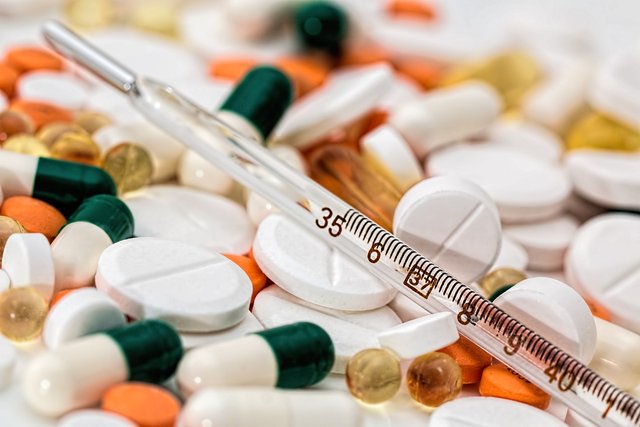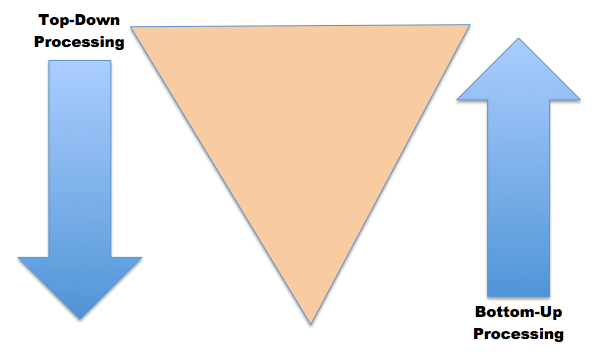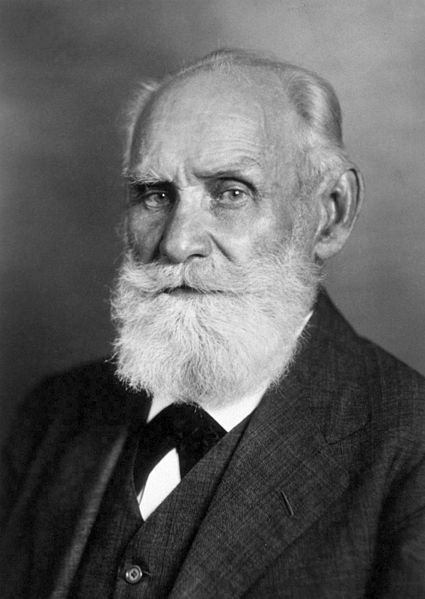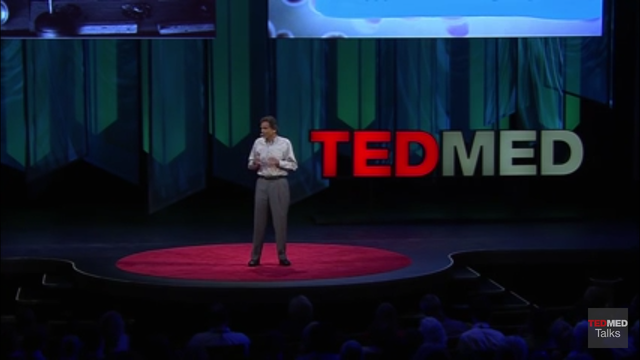Mental Healing: The Secret Behind Placebos
Hello, folks! It’s been a long time since I last dropped something here, and I am totally excited about this new topic. I took my time to compile this, and I really hope you all enjoy it. I hope this leaves you just as thrilled as I was when I first stumbled upon it.
Often times, I always wondered why it seemed as though all medical doctors have bad handwriting. Many times, it did seem they all had learned it at some point in their training. I always had trouble reading it, and so did most people around me. What left me baffled as a little boy was how the pharmacist would pick up the prescription and replace them with drugs right before my very eyes. ‘Was he also trained to read poor handwritten memos? Or wait, what if he misinterprets what is on that paper? What if he gives me birth control pills in place of pain killers? Or could it be that the doctor and pharmacist have planned to give me drugs that don’t actually work?' I tend to think about many possibilities to this baffling situation. It would sound weird to take a particular medication that works really well, but doesn’t actually ‘work’, wouldn’t it? The shocker is, these kind of drugs actually do exist! Ladies and Gentlemen, we give you placebos.
What’s a placebo?

Placebos from Pixabay under CC0 License
A placebo is a substance with no active pharmaceutical content. In a common man’s terms, a placebo is a drug that contains no substance that is capable of making you feel better. A placebo can either be inert tablets (sugar pills), saline injections, a sham surgery, or other drugs. The amazing fact about placebos is that they can have an effect on the individual using them, even when they practically don’t have the chemical content to do so. This is called the placebo effect.
In the laboratory, medical research have been conducted on patients by disguising the placebos as an active medication. This causes the patient to think he or she is truly on medication. If the patient responds positively to the treatment, it is tagged as a placebo response, and the resulting difference in the patients initial condition and the final one is called the placebo effect.
The word ‘placebo’ was originally extracted from the latin language, which means ‘I will please’. It was defined in 1811 as
A medicine adapted to please than to benefit.
Although due to more recent research, this definition has been overruled owing to the fact that placebos have been proven to actually have a more psychological effect on the user, which triggers the desired response. However, even as seemingly effective as placebos have proven to be, they have been known to only work well for subjectively defined conditions. Such conditions include pain, fatigue, acute insomnia or nausea. These conditions and symptoms are all based on the observation of the patient. According to research, most placebos are very much effective when the patient does not know that they do not contain the active substance that is capable of solving their health concerns, or eliminating the symptoms exhibited.
A very common example of the efficiency of placebos is seen when comparing its benefit with antidepressants. According to research, very little difference exists in the outcome of using both drugs, even though antidepressants have active substances.
HOW EXACTLY DO PLACEBOS WORK?
The effectiveness of placebos have been associated with the brain’s ability to process information. Some researchers have attributed the effectiveness to a phenomenon named the Top down processing.

Top down processing from Wikimedia under CCAttribution-Share Alike 4.0 International License
In many situations, the brain is faced with the task of interpreting whatever response it receives from the five senses and sending it ‘up’ from processing. That’s the Down top processing. In contrast, the Top down processing takes place when the brain sends messages to the organs particularly the muscles and neurons, based on the information processed. This theory is duly backed by a theory called Classical Conditioning. This theory was demonstrated by a scientist named Ivan Pavlov.

Ivan Pavlov from Wikimedia under CC BY-SA 3.0License
He rang a bell before feeding a dog, and after some time, he realised that the dog reacted with gastrinal excitement whenever it heard the bell ring even when there was no food. If a dog’s brain can be that sensitive, how much more that of a man?
In relation to classical conditioning, it is simply argued that the placebo response is a function of what the patient’s brain thinks. In order words, you instantly feel less pain in your dislocated shoulder after taking a placebo just because your brain instantly tells the dislocated part of your arm, ‘dude, you’re fine. The drug’s coming to make you feel better’, even when in actual fact, the drug doesn’t have the content to do so!
Placebos are mostly used to positively heal subjectively defined conditions, however they can be used in reverse manner. The 2017 blockbuster movie, ‘IT’ shows the character of a young boy named ‘Eddie’ whose mother’s overboard paranoia moved her to liase with the family pharmacist in giving her son placebos just to make him think he was sick.

Screen shot of Eddie take from Warner Bros. Pictures YouTube channel. Taken 1:14 minutes from start
Whenever he suffered one of his frequent panic attacks, he always felt much better after popping a few tablets down his throat, even though they were placebos. The moment he realised he had been made to live a lie, the panic attacks disappeared, even at the very presence of the dreaded child-killer, ‘IT’. This is an example of how placebos cam be used in reverse function. It is possible to make someone feel they have a health condition worth worrying about, and the maintenance medication is the placebo prescribed, even when in the truest context of the matter, they are 100% okay.
Placebos have been found to be very much effective when patients are being kept in the dark concerning the content of the pills they are being given. However, in one of many studies, it has been proven that some patients still exhibit the placebo effect even when they know they are on placebos! Makes no sense, right? I’m suffering from headache, then I pick up a drug that contains just sugar, knowing fully well that it has no implication on my current condition, throw a few tablets down my throat and I totally expect that I would feel better in no time. That’s exactly what recent studies have shown. (I suspect this is totally detrimental to the aspirin manufacturing industry). In a recent research conducted on people suffering from Irritable Bowel Syndrome (I.B.S) symptoms, over 60% of affected patients responded positively to the placebo, and felt much better than before even when they knew they were on placebos, compared to about 30% that didn’t use any drugs.
In truth, I really don’t think the placebos are behind all of this. Just as the topic of the write up implies, everything is a function of the Mental Healing. In other words, it is the brain that is responsible for the relief obtained after taking a placebo. A veteran professor of medicine at the Havard Medical school, and also the director of placebo studies at the Beth Israel Deaconess Medical Centre; Dr. Ted Kaptchuck (a man with a pretty interesting resume, don’t you think?), made it clear to us all at his thoroughly enlightening talks,

Screen shot of Prof. Ted from TEDMED YouTube Channel. Taken 2:33 minutes from start.
The ritual of medicine activates particular areas in the brain that actually will reduce pain, or at least reduce sensations that we have in relation to pain.
In a common man’s terms, the reason why the sugar pills help relief you of pain is because the action of taking pills to help solve health problems causes the brain to automatically send relays down to the affected areas, telling the affected organs that the ‘ritual’ has been performed. This conforms heavily with Ivan Pavlov’s experiment. There you have it. Your brain can heal you of some health issues, particularly the ‘subjectively defined’. This is why even though you’ve slept all through the lecture, the moment you hear there’s going to be an impromptu quiz or test, Somnus (the Greek god of sleep) immediately loses his grip on you. The brain does it all, with a little help from the placebos.
Conclusion.
Sometimes, you really don’t need to take drugs before you get relief. Many of these times, all you really need to know is that you will be fine. I have met quite a few number of people that don’t go to the hospital when they don’t feel too well. All they do is get some really good food, one that they don’t get to eat very often, and they go somewhere peaceful to rest. Before the next day, all symptoms disappear. Such people have programmed their brains to believe that the fastest way to get relief from mild fever is to eat good, quality food. The truth of the matter is, the brain believes what we want it to. Whatever the brain believes has a big role to play in the reaction obtained from the other body organs. The brain is definitely the most interesting part of the human body. Its remarkable abilities have been undermined, leaving us frustrated in many situations that need not cause a person to break a sweat. Placebos do help, In fulfilling all ‘ritual rites’, before the desired results are made manifest, but the response to these pills boils down to how the brain interprets it. So until next time folks, THINK POSITIVE!
Placebos have been proven by many studies to be effective in contrast to actual medications. You have explained much regarding it but I can't still why doctors exhibit bad handwritings or how pharmacists can understand that particular bad handwriting.
Still baffles me too. Lol. Hopefully, I'll get a friend studying medicine to help shed little light.
Hi @maothon. I would say that you have done a pretty good job, composing this article to educate the public regarding placebos. I might have a few suggestions for you to improve your article:
I know it can be difficult to create certain things such as definition, quotes from someone important and all, but you actually can take the exact sentence and put them in your article. You just need to put it in a quote box and cite its source.
You need to give some spaces between paragraph to make it more organised. Making a new paragraph but continuous in appearance with the previous one seems shabby.
Regarding the Profesor Ted screenshot; you can attach the full-length video in here instead of putting up a screenshot of him. It would be much of use for your readers to learn whatever you have learned from the video itself.
Overall, it is a good article. Kudos.
Thanks a lot.
Adjustments will be made regarding your observations.
And as regards the videos, I referenced it back to the sources on youtube.
Thanks for the advice though. It's gonna be very helpful in consequent posts.💪
This is quite nice, i once saw a movie, i've forgotten d name, something similar to this was used, though it was used in a bad way, some type of gas was used in killing people, the gas worked in such a way that, when its inhaled by the victims, they'd feel like they are being attacked by something or someone, in one instance, a guy felt like he was being attacked by another guy with a knife and he died through the process with knife marks found on his body.
Apparently the brain thinks he was being attacked with a knife and created all those knife marks on the victims body which led to his eventual death...it was very strange to me.
That's obviously on the intense fictional aspect of it. Lol. But, placebos really can be used negatively. It's capable of messing up people's judgment concerning their health Conditions.
But I'll like to see that movie though😏
I once watch a movie titled "everything everything" where the lady's mother fed her with a placebo to keep her alive, claiming she was having a form of illness known as scid. Eventually the entire thing was a lie as she was healthy. Well written
Congratulations @maothon! You have completed the following achievement on Steemit and have been rewarded with new badge(s) :
Click on the badge to view your Board of Honor.
If you no longer want to receive notifications, reply to this comment with the word
STOPTo support your work, I also upvoted your post!
Wow, what a nice post from a good writer.
All the placebo does is that it gets into one's psychology and makes your brain record that you're using the right drug.
It's been long I read something on psychology of this quality. This post really deserves something good.
Congratulations @maothon! You have completed the following achievement on Steemit and have been rewarded with new badge(s) :
Click on the badge to view your Board of Honor.
If you no longer want to receive notifications, reply to this comment with the word
STOPDo not miss the last post from @steemitboard:
SteemitBoard and the Veterans on Steemit - The First Community Badge.
Congratulations @maothon! You received a personal award!
You can view your badges on your Steem Board and compare to others on the Steem Ranking